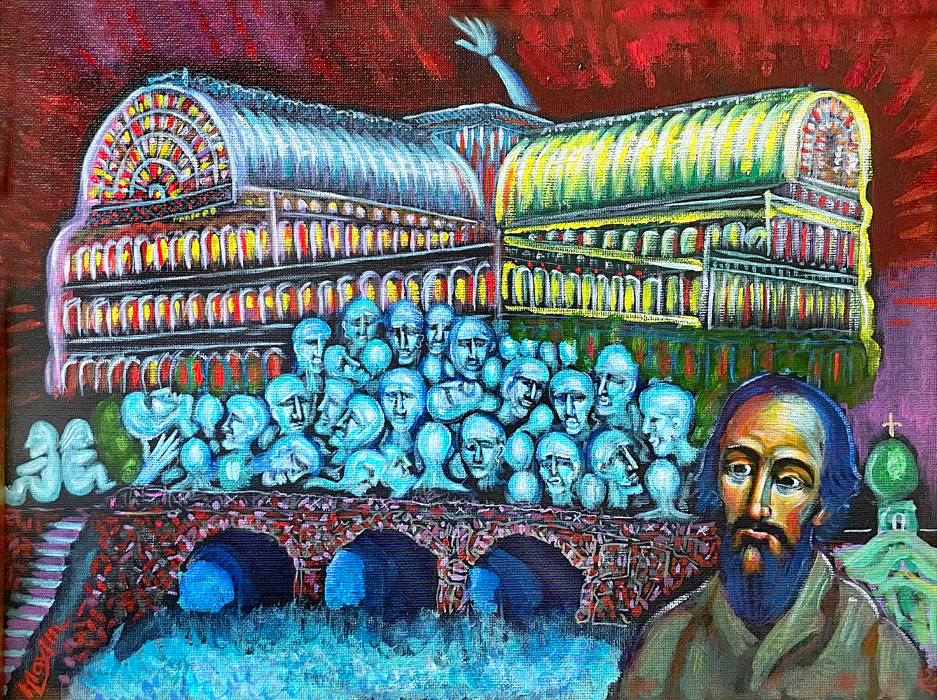
- Details
- Category: Maxim
- Hits: 679

"Dostoevsky and the Symbol of The Crystal Palace", acrylic on canvas, by Bishop Maxim, 2022
In his Winter Notes on Summer Impressions, Dostoyevsky presented the Crystal Palace as a symbol of the controlling mechanism of utilitarian rationalism, a creation of Baal that would offer material abundance while demanding the sacrifice of spirit, autonomy, and authenticity. The painter sees this place as a cold, senseless emptiness of hell for many generations with the involuntary handicap of a loveless life. The other--although close to me--is my failure to live fully; he confirms my loneliness. Our emotions don't coincide, but our inner pain of traveling together without companionship is the same. Our nakedness reveals us as impersonal objects of pleasure, outside the bounds of relation, of mutual self-offering. The blindness in the eyes points to the deprivation of the vision of our real goal.
Dostoyevsky's underground man rejects such a utopia because he wouldn't be able to exercise his free will by indulging in spite, sticking out his tongue. "You believe in the crystal palace, eternally indestructible, that is, one at which you can never stick out your tongue furtively nor make a rude gesture, even with your fist hidden away. Well, perhaps I'm so afraid of this building precisely because it's made of crystal and it's eternally indestructible and because it won't be possible to stick one's tongue out even furtively."
